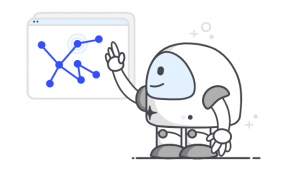Experts, Contests and Influence
 I’ve been observing the rise of an alarming trend in the world of social media: the growth of social media ego. It’s nothing new, as social media’s rise has offered a new way to increase people’s profiles.
I’ve been observing the rise of an alarming trend in the world of social media: the growth of social media ego. It’s nothing new, as social media’s rise has offered a new way to increase people’s profiles.
Some people have truly earned their newfound fame by providing original thought and seeding the community with thought-provoking conversations that make all of us better. However, that can’t be said for everyone. There are tons of opportunistic d-bags who jumped in and built their "followings" with dubious practices, declared themselves gurus, ninjas and experts.
This is NOT to say that some people actually don’t deserve the title of an expert — however, they remain few and far between. Some of the people with large followings just happened to be at the right place at the right time, which is not replicable and explains why they fail to deliver to their clients, who still overpay for social media services because they don’t fully understand them.
Does size matter?
Let’s talk about the size of your network for a second. By the way, I hate the notion of counting Twitter followers; it makes me think of a bunch of sheep following a shepherd blindly — could be just me though.
You aren’t my followers or disciples; you are my friends and colleagues. For some reason, we the human race, are obsessed with numbers. Some things should be measured – absolutely! How else would you know where you are, where you are going, and how you will know when you will get there? However, just because you can measure something, doesn’t mean you should. And if you should, you should never take it out of context. Number of followers / size of network is precisely such a measurement that should never be taken out of context.
Twitter can be easily gamed to grow followers, and even if you earned those followers, they may not be a good match to relate to what you talk about, thus resulting in low engagement. I suggest you read Anil Dash’s "Life on the (suggested Twitter) list" to see for yourself if number of followers translates to engagement. Bottom line for me, is that I would rather have 100 followers that cared about what I said and interacted with me vs. 1000 followers who dismissed everything I said.
Knowing each other in context leads to trust, which leads to influence (see great post by Michael Wu yesterday who talks about importance of factors like context to influence).
Influence
Ah, influence! The topic du jour… Two days ago, Fast Company completely botched its attempt at creating a "viral campaign". The premise was an MLM-like scheme where you con your followers into clicking your link, which makes you more influential with each click, as their followers click you, and consequently their followers click you. There are so many things wrong with this, I don’t even know where to start; so let’s start with the low hanging fruit.
No such thing as a campaign in social media. Yes, you can do fun projects, and you should! Create whitepapers, videos, blogposts, get out there and do something creative for your community – something that really gets people talking, something that adds value. But to really move the needle in a meaningful way, you have to consistently execute, engage, converse and build relationships. I hate to break it to you, but social media is about relationships, and relationships take time.
You can make something go viral. This notion enrages me. Really. Truly. You don’t decide when your stuff goes viral. People who consume it do ("consume" here means: read, watch, listen, whatever). After they consume it, they comment on it, and they share it. And they do it all over again. When enough people do that, things go viral. You can’t force something to go viral, and the truth is that very few things actually do. Your goal should be creating good content.
Clicks aren’t influence. They are a poor man’s version of reach, pandering to the "number of followers" fallacy (see above – 2nd para). Reach should be measured too, but again context is important. influence is so complex, and metrics aren’t always right for it. Klout is the best execution we have, to date, portraying complexity AND including context within their metrics, i.e. if I am influential in social media monitoring, I am not necessarily influential in gadgets. As good as Klout is, a lot of influence can not and should not be measured. It happens in your brain, in the backchannels, in F2F conversations.
Did I mention this is a con and an MLM? You get "credit" when your "downline" clicks on you. Excuse my French, but WTF! At this point, we all know how virality works. Each of your friends tells 5 friends, each of which tells another 5 friends – and so it grows. I think it’s safe to say that we get it (at least, we, as in the audience of Fast Company), and don’t really need this illustration. If I’m gonna ask my network to click something, it’s going to be something of value.
Adverse effects
An interesting thing happened in my mind: as people started tweeting, IMing, Facebooking and otherwise polluting my social media stream with this project, campaigning for my vote, they actually lost a bit of influence and "street cred" with me. Not only did Fast Company lose a whole bunch of its own influence (which is a darn shame!), but it’s also helping people who don’t know better to undermine their own credibility. As I was commenting on Esteban Kolsky’s blog yesterday, one offense isn’t cause for dismissal, but I will have to make some withdrawals from your trust account. Let’s face it, we all make mistakes — it’s what makes us human.
Even the relatively social media savvy author of this blog fell for it with my application for the Murphy Goode wine job position, where I asked my friends to vote for me (whose votes got completely ignored by Murphy Goode in the end — another botched "campaign"). But at least I made a video and produced a bunch of blogposts and a funny fake commercial. Even though the whole thing was an error on my part, I did it once, and I think I did add some value, even if it was a comic relief. Don’t get me wrong, I don’t regret it, because I met amazing people, like my friend Rick Bakas.
I am not against voting. I will vote for you if I think it’s cool and adds value, and will ask you to vote for me (very infrequently) if I think I have a chance to make a difference. But I won’t indulge your vanity so that you can feel good about placing first in a contest that’s as deep as a puddle, so that you can become professionally and personally validated. Because if you were professionally respected, you wouldn’t seek validation from a popularity contest.
Before you participate in another contest, please take a minute to think. Contests are rarely called that: they masquerade as social media jobs (Murphy Goode, MTV Twitter Jockey) and the ill-fated "Influence Project" (see how badly it’s been received by bloggers). These popularity contests have nothing to do with adding value or creating buzzworthy content, or getting people to move the needle on anything worthwhile. What these contests do have in common is that they are essentially PR stunts, using the naiveté of "social media sheep" to click on stuff, forward stuff along, to create more "buzz", in exchange for a chance at the glittery social media stardom.
Don’t make a mistake – this buzz is for the brand conducting the contest, not for you. So before you click a button and ask your friends to vote, ask yourself if you are providing at least some value in return. And yes, sometimes you will make mistakes, and things will turn out not as valuable as you thought. But if your intent is solid, people will mostly understand. And remember this: influence will never be reaped in one day, you have to spend a lifetime building it – online or off.
Photo credit billaday
A message from John Furrier, co-founder of SiliconANGLE:
Your vote of support is important to us and it helps us keep the content FREE.
One click below supports our mission to provide free, deep, and relevant content.
Join our community on YouTube
Join the community that includes more than 15,000 #CubeAlumni experts, including Amazon.com CEO Andy Jassy, Dell Technologies founder and CEO Michael Dell, Intel CEO Pat Gelsinger, and many more luminaries and experts.
THANK YOU













